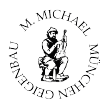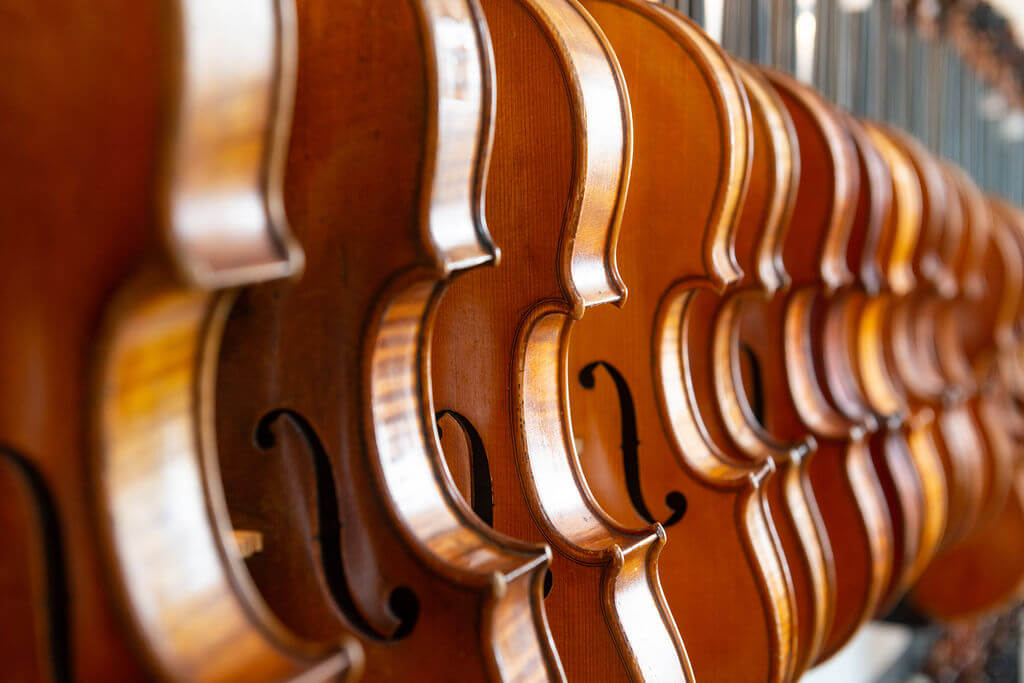

Our Team
Marion Michael, Airi Tedo, Thomas Röpke, Winfried Michael
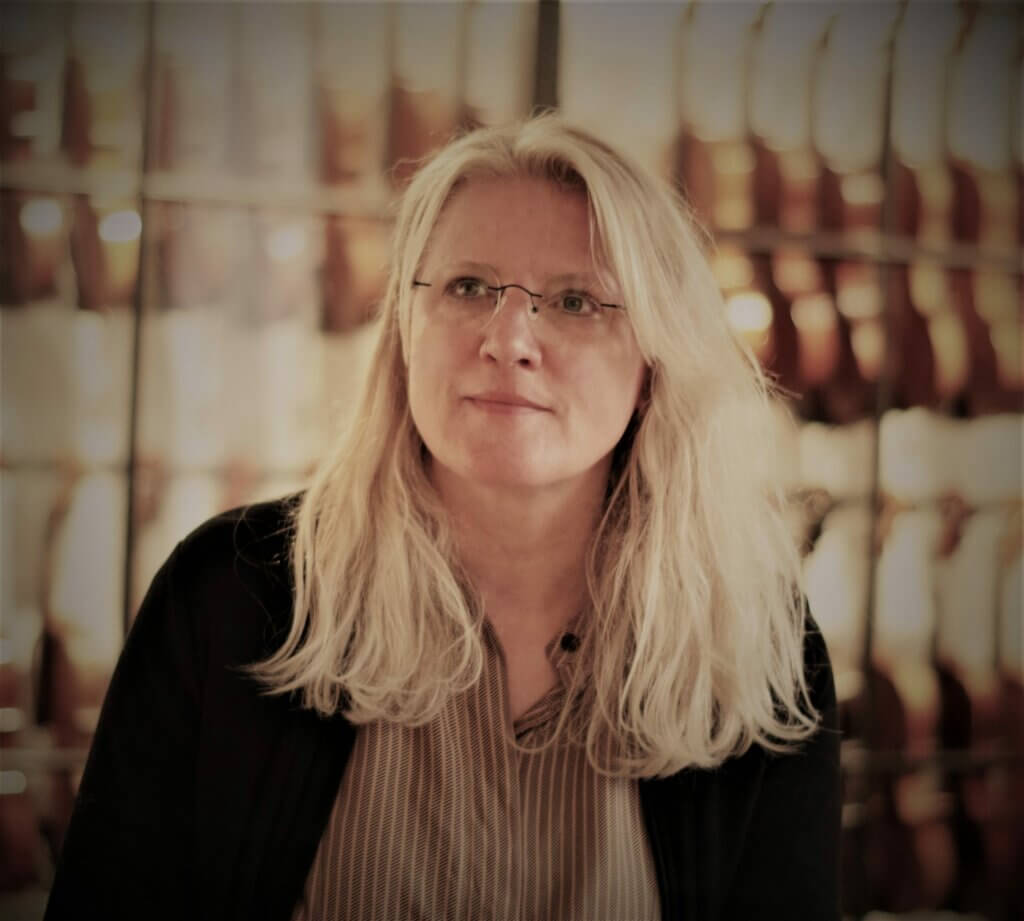
Marion Michael, owner
Born in 1973, Marion Michael began her violin‐making apprenticeship in 1995 in Munich and Mittenwald, successfully completing it with her certification as a violin maker. She then spent several years working in her father’s workshop, where she perfected her skills and became attuned to the nuances of the craft.
In 2007, Marion passed her master’s examination in Mittenwald. From then until 2012, she and her father managed the shop and workshop together, after which she took full ownership of the business. Since becoming an independent luthier, Marion’s workshop has welcomed violin makers from France, Italy, Japan, Taiwan, and beyond.
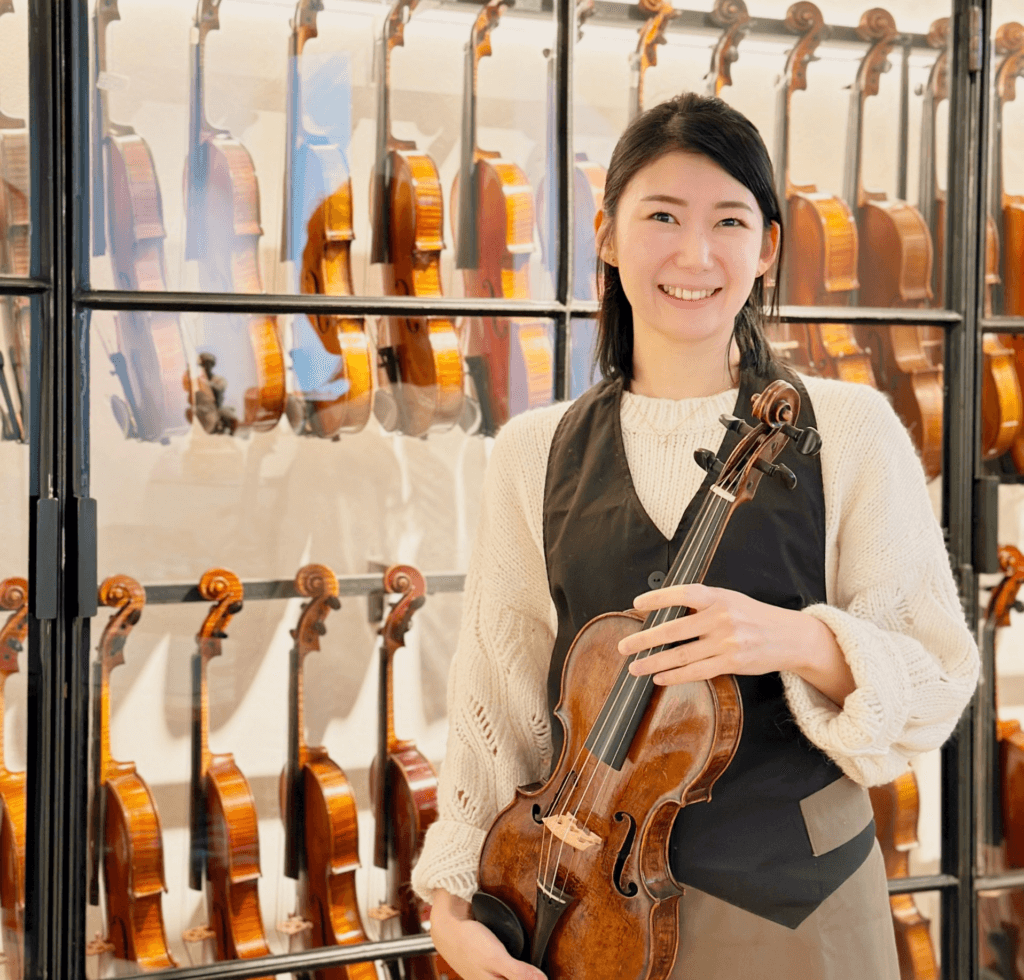
Airi Tedo
Ms. Tedo, born in 1989, comes from Japan. She began playing the violin at the age of nine, which ultimately led her to the craft of violin making. After graduating from high school, she began training as a violin maker in Tokyo. Ms. Tedo moved to Germany in 2010 to continue her training. Ms. Tedo moved to Germany in 2010 to continue her training. Her path led her via Munich (learning the German language) to Würzburg, Haldenwang and finally Mittenwald, where she passed her master‘s examination in 2020. Ms. Tedo is an active orchestral musician and therefore has insight and understanding of the needs of string musicians.
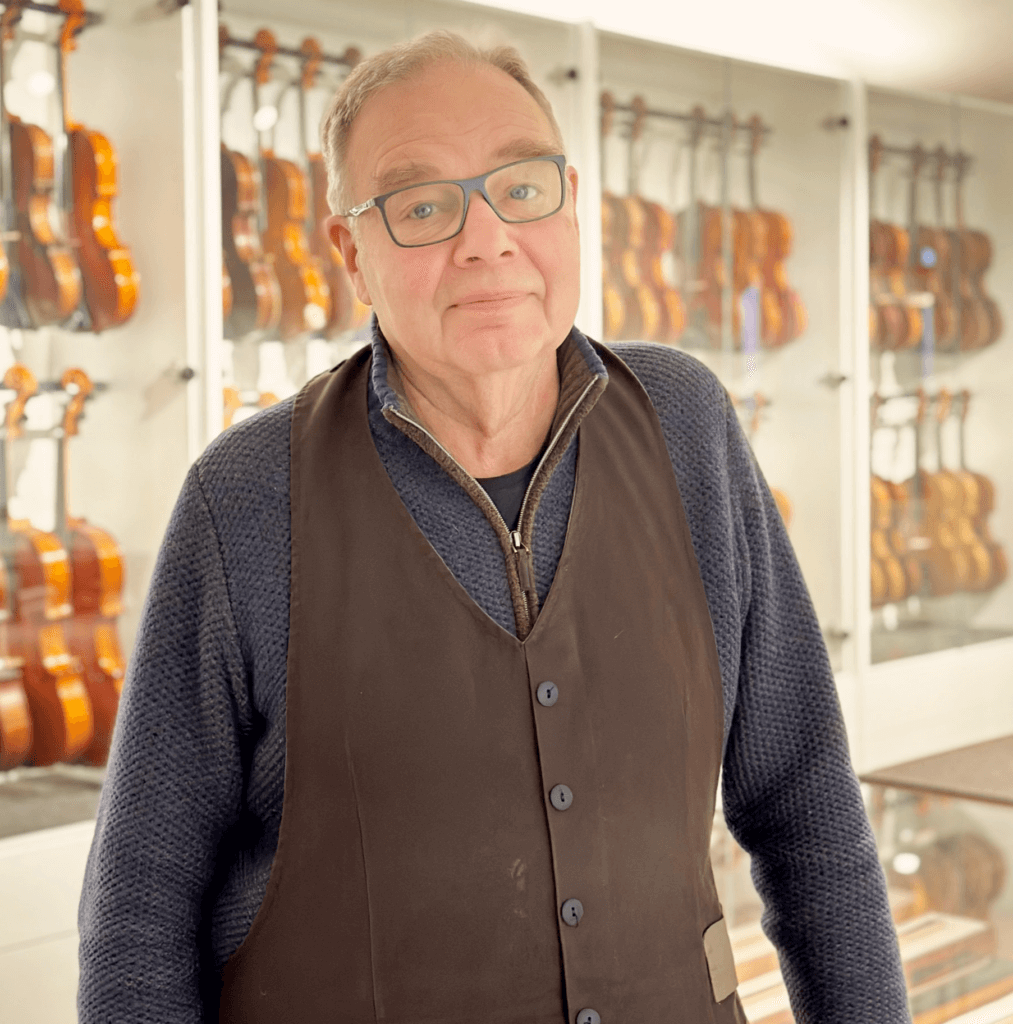
Thomas Röpke
Thomas Röpke, who has been part of the workshop since 2015, is specifically responsible for the bows of the string instruments In particular, he carries out rehairing and all other repairs to customer bows. Daneben ist Thomas Röpke auch mit der Restaurierung beschäftigt.
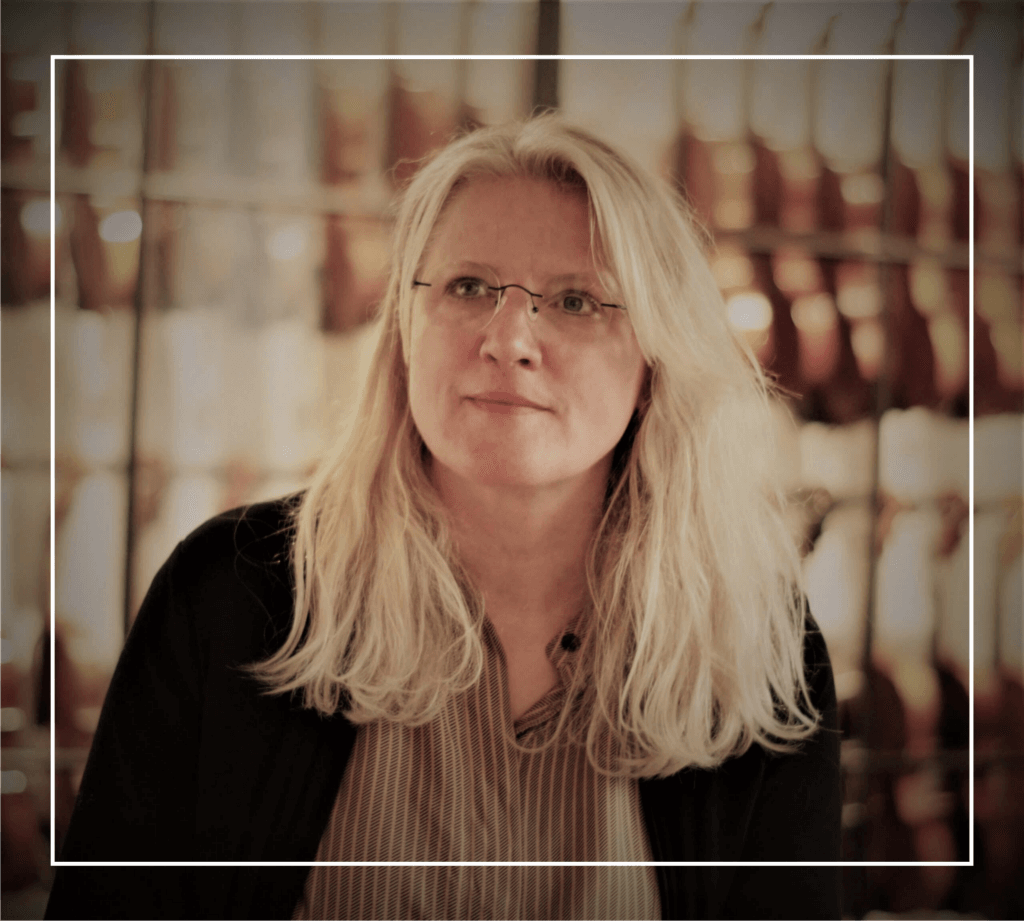
Marion Michael, owner
Marion Michael, born 1973, began her training as a violin maker in Munich and Mittenwald in 1995 and successfully completed it with the journeyman’s examination. She then worked for several years in her father’s workshop, where she further honed her craftsmanship skills.
In 2007, she passed her master craftsman’s examination in Mittenwald. She ran the store and workshop together with her father until 2012 and then took over the business completely. Since then, she has worked as an independent violin maker. Since then, various violin makers have worked in her workshop, e.g. from France, Italy, Japan and Taiwan.
Airi Tedo
Ms. Tedo, born in 1989, comes from Japan. She began playing the violin at the age of nine, which ultimately led her to the craft of violin making. After graduating from high school, she began training as a violin maker in Tokyo. Ms. Tedo moved to Germany in 2010 to continue her training. Ms. Tedo moved to Germany in 2010 to continue her training. Her path led her via Munich (learning the German language) to Würzburg, Haldenwang and finally Mittenwald, where she passed her master‘s examination in 2020. Ms. Tedo is an active orchestral musician and therefore has insight and understanding of the needs of string musicians.
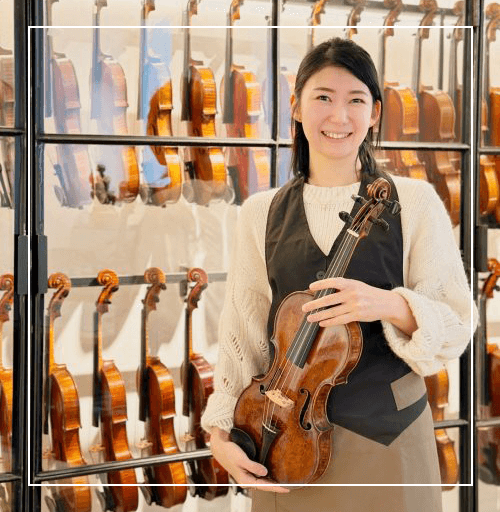
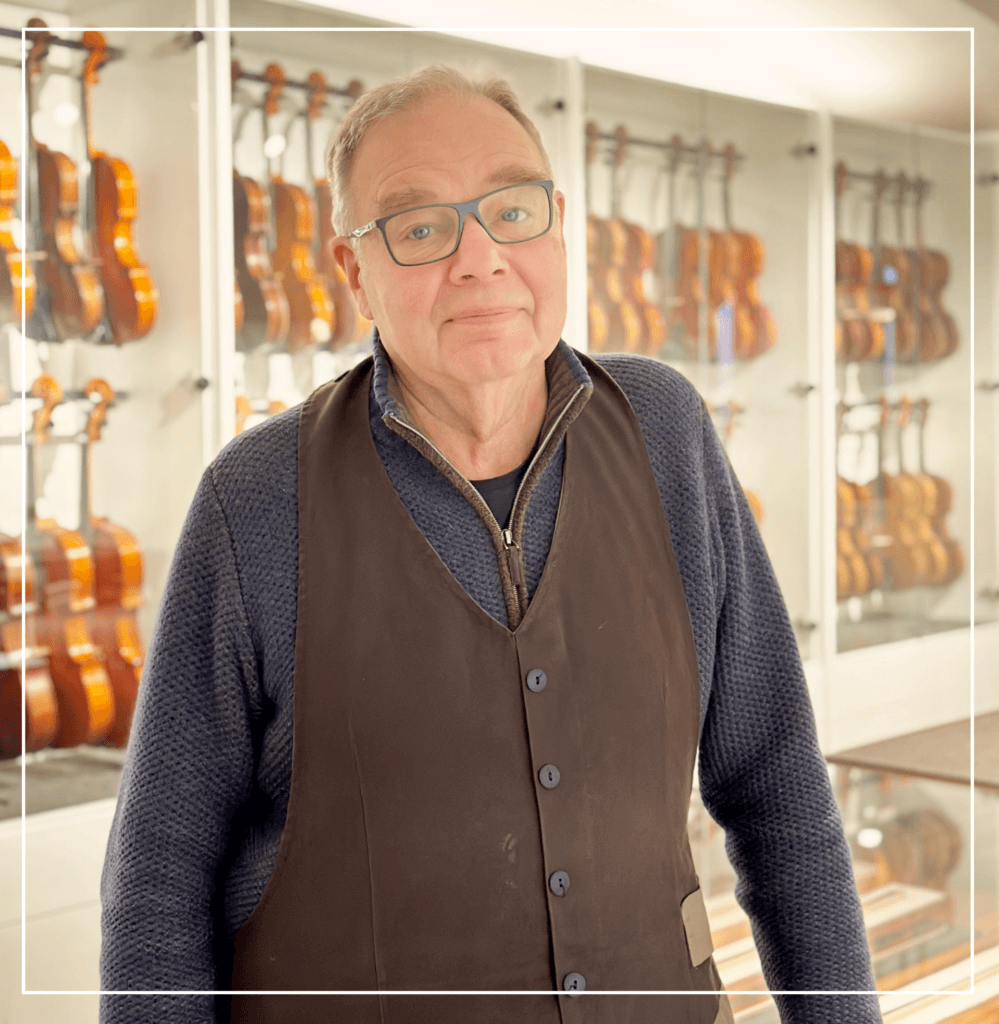
Thomas Röpke
Thomas Röpke, who has been part of the workshop since 2015, is specifically responsible for the bows of the string instruments In particular, he carries out rehairing and all other repairs to customer bows. Daneben ist Thomas Röpke auch mit der Restaurierung beschäftigt.
History
Violin making in the second generation
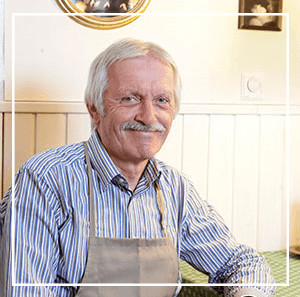
It has been handed down that ancestors of the Michael family were already making components for stringed instruments in the 19th century. The founder of today’s Geigenbau Michael company was Marion’s father, Winfried Michael, born in 1942. He attended the state technical school for violin making in Mittenwald from 1958 and won several Bavarian state prizes in violin making competitions. After completing his training in Kiel and Freiburg i. Br., he passed his master craftsman’s examination in Karlsruhe in 1967.
in 1968 he opened his own violin making workshop in Munich. He spent a long time looking for suitable premises, which he finally found in the basement of Hildegardstraße 6 near the Isartor: The vaults of the listed building are ideal for storing stringed instruments and tonewoods due to the better humidity, especially in the winter months. He shaped and managed his workshop for more than forty years. Since 2012, his daughter Marion has been running the workshop and store as a master violin maker.
History
Violin making in the second generation
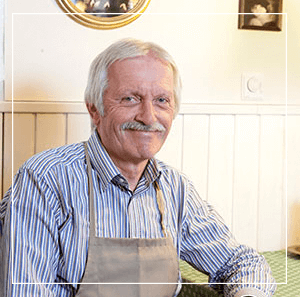
It has been handed down that ancestors of the Michael family were already making components for stringed instruments in the 19th century.
The founder of today’s Geigenbau Michael company was Marion’s father, Winfried Michael, born in 1942. He attended the state technical school for violin making in Mittenwald from 1958 and won several Bavarian state prizes in violin making competitions. After completing his training in Kiel and Freiburg i. Br., he passed his master craftsman’s examination in Karlsruhe in 1967.
n 1968 he opened his own violin making workshop in Munich. He spent a long time looking for suitable premises, which he finally found in the basement of Hildegardstraße 6 near the Isartor: The vaults of the listed building are ideal for storing stringed instruments and tonewoods due to the better humidity, especially in the winter months. He shaped and managed his workshop for more than forty years. Since 2012, his daughter Marion has been running the workshop and store as a master violin maker.
History
Violin making in the second generation
It has been handed down that ancestors of the Michael family were already making components for stringed instruments in the 19th century.
The founder of today’s Geigenbau Michael company was Marion’s father, Winfried Michael, born in 1942. He attended the state technical school for violin making in Mittenwald from 1958 and won several Bavarian state prizes in violin making competitions. After completing his training in Kiel and Freiburg i. Br., he passed his master craftsman’s examination in Karlsruhe in 1967.
n 1968 he opened his own violin making workshop in Munich. He spent a long time looking for suitable premises, which he finally found in the basement of Hildegardstraße 6 near the Isartor: The vaults of the listed building are ideal for storing stringed instruments and tonewoods due to the better humidity, especially in the winter months. He shaped and managed his workshop for more than forty years. Since 2012, his daughter Marion has been running the workshop and store as a master violin maker.
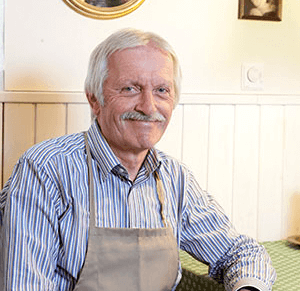
Articles & Reportages
here for reading
Violin Making with Marion Michael – The Reportage
A report about our master workshop – published on 10.04.2014 in the Evening Newspaper.
How a violin is made
A feature on the creation of a violin and the challenges of violin making. A report about violin making on www.alle-noten.de.
